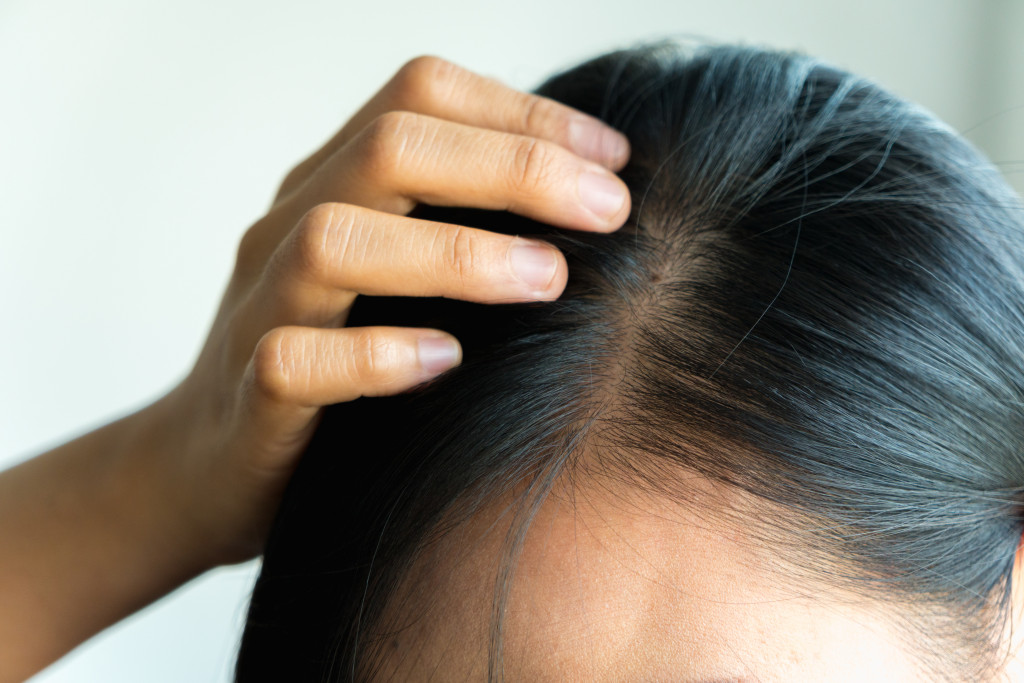Postpartum depression is a mood disorder that can affect women after childbirth. It can cause mood swings, crying spells, difficulty sleeping and eating, and feelings of sadness and hopelessness. Postpartum depression can also lead to thoughts of harming yourself or your baby.
If you think you may have postpartum depression, tell your health care provider. It’s important to remember that postpartum depression usually goes away with treatment.
Why do women suffer from postpartum depression?
A number of factors can cause postpartum depression. Some women are more likely to develop postpartum depression if they:
- are pregnant for the first time
- have had postpartum depression before (history of postpartum depression increases your risk for developing it again with another pregnancy)
- have given birth to multiples
- have a pre-existing mental health condition such as anxiety or depression
- experience significant life changes such as moving, starting a new job, or becoming a single parent
- don’t have strong social support from family or friends
- aren’t breastfeeding
- are feeling overwhelmed and stressed due to the demands of taking care of a newborn
- have recently given birth to a stillborn baby or experienced the death of someone close to them. (This is especially true if you’re feeling severe depression during the six months after your loss)
Who is at risk?
Postpartum depression may also occur in fathers, siblings, and other family members after the birth of a child. It’s important to remember that postpartum depression is not your fault, and there are things you can do to help yourself feel better.
Postpartum depression can significantly affect the whole family, although it may be hard to recognize during the first weeks after the baby is born. The good news is that if you’re having symptoms of postpartum depression, there are things you can do to feel better.
What are the symptoms of postpartum depression?

Symptoms may be different for every woman, but they are usually mild at first and increase gradually over time. They can include:
- Feeling sad or hopeless for weeks or more
- Crying spells for no reason
- Feeling very tired, especially in the late afternoon and evening
- Having little interest or pleasure in doing things you used to enjoy
- Long intervals of sleeping during the day or trouble sleeping at night.
- Waking up early in the morning and being unable to go back to sleep.
- Feeling irritable, anxious, or overwhelmed
- Having trouble focusing, concentrating, or making decisions
- Eating too little or too much
- Thoughts of harming yourself or your baby. This includes thoughts about suicide, wanting to run away with your baby, and harming the baby
How common is postpartum depression?
It’s hard to know exactly how common postpartum depression is because many women don’t seek help. It’s estimated that 10 to 15 percent of women who give birth each year have postpartum depression.
What are the treatment options?
Postpartum depression is usually treated with talk therapy, medication, or a combination of these two treatments. Because talk therapy or medication can have side effects, you and your health care provider will need to decide what’s right for you.
There are many ways to deal with postpartum depression or reduce its symptoms.
Your doctor or midwife may recommend regular exercise, eating well, and improving your sleep habits. Talking to a friend, family member, or someone else you trust can also help. Ask your doctor about support groups in your area that offer information on postpartum depression and coping skills.
Some women find relief by taking vitamins or herbal supplements, such as St. John’s wort. However, it’s important to talk with your doctor before taking any type of supplement since some can interact with medications you’re taking.
If you’re feeling overwhelmed and stressed due to the demands of taking care of a newborn, consider hiring a postpartum doula. A doula is someone who gives support and information about breastfeeding, infant soothing methods, or anything else you might need.
If depression symptoms get worse over time, your doctor may recommend antidepressant medication. If medication isn’t an option for you, talk to your doctor about other ways to cope with the effects of postpartum depression on your life. You can also ask your doctor if antidepressant medication might be appropriate if your symptoms do not resolve within a few weeks.
Where can I go for help?
If you think you have postpartum depression, tell your health care provider as soon as possible. You also may want to talk to your partner, family members, or close friends. Have them read this list of symptoms, so they know what you are going through.
You can also get the help of your skincare professional or your trusted cosmetic service provider. Among the treatments that you can undergo to regain your beauty, confidence, and self-esteem include facelifts, massage therapy, facials, and Botox injections. These services will help you look
The sooner postpartum depression is treated, the better. If you’re thinking about suicide or harming yourself or your baby, call 911 immediately. Or call a crisis hotline number any time, day or night, if you need help.

